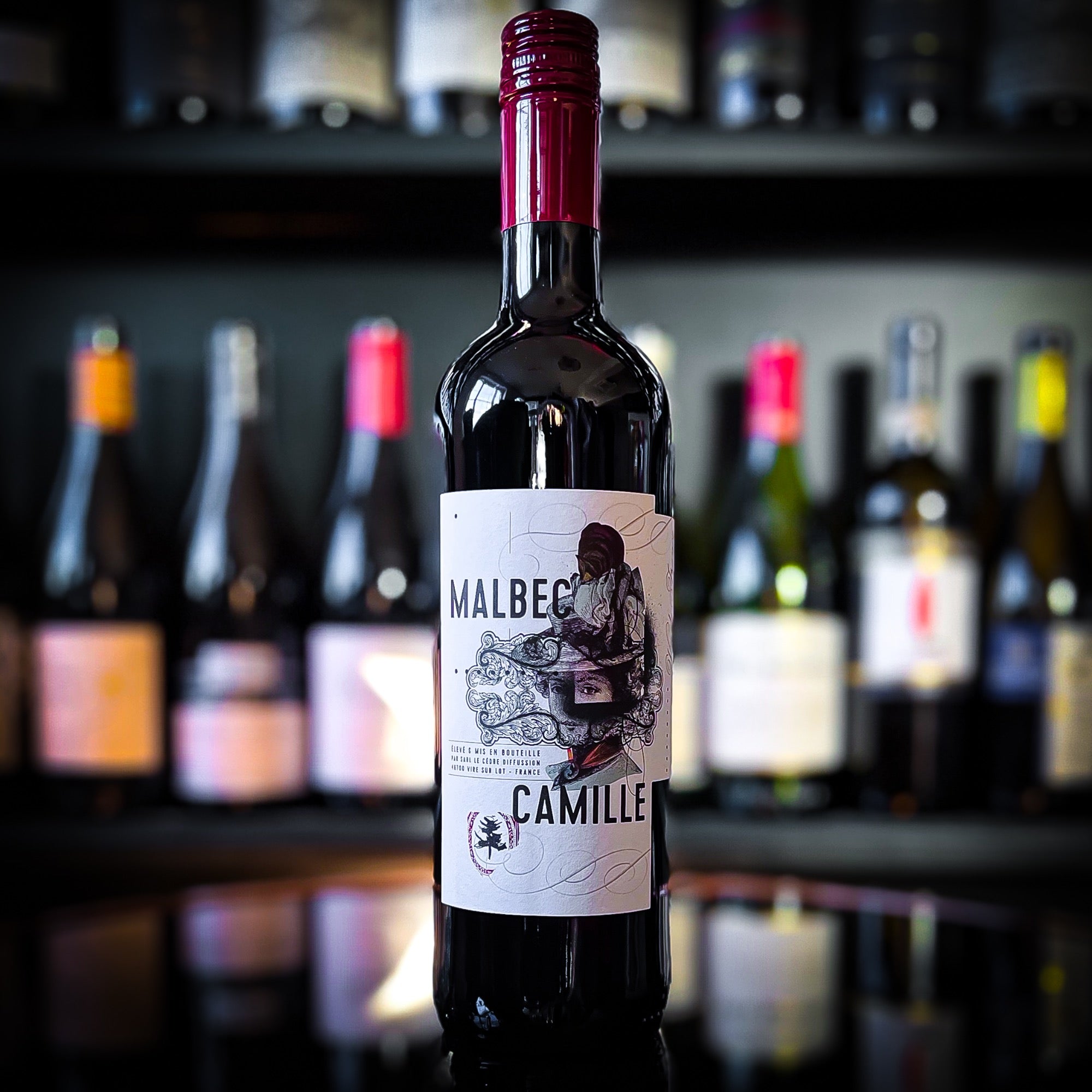Chateau du Cedre Camille Malbec
Chateau du Cedre Camille Malbec
2023
A soft, approachable Malbec which doesn't spend any time in oak
Available in stock (118)
Couldn't load pickup availability
Loaded with deep, luscious plum and cassis compote, its vibrant juiciness is lifted by a delicate herbal note and a lingering, earthy finish.
Argentine Malbec and Cahors share the grape but diverge in place and style. Argentina’s high-altitude Mendoza vineyards yield ripe, plush wines with deep color, violet perfume, blackberry and plum, supple tannins, moderate acidity, and generous alcohol; oak often adds vanilla and cocoa. Cahors, from southwest France, is firmer and more savory: higher acidity, grippier tannins, blackcurrant and dark plum with graphite, tobacco, and earthy notes.
The Chateau du Cedre Camille Malbec is a softer, more approachable style of Cahors Malbec showcasing pure red fruit with no oak ageing.
Producer: Chateau du Cedre
Producer: Chateau du Cedre
Region: Cahors
Region: Cahors
Grape: Malbec
Grape: Malbec
Malbec
Delivery information
UK Mainland
- - England & Wales: Free standard delivery on orders over £150
- - England & Wales: £10.99 standard delivery on orders below £150
- - England & Wales: Saturday delivery is £24.99.
- - Scotland: Standard delivery from £13.99 but this is dependant upon the shipping postcode
- - Scotland: Standard delivery is subsidised on orders over £150
- - Scotland Saturday delivery from £28.99 but this is dependant upon the shipping postcode.
Local delivery
- - We offer free local delivery to GL50, GL51, GL52, GL53 and GL54 on orders over £100.
- - £5.99 on orders below £100.
- - Saturday delivery is £24.99.
UK Non-Mainland (Islands & Highlands)
- - Delivery costs will vary. Please enter your postcode at the checkout to calculate.
- - We are currently unable to deliver to Northern Ireland.
Delivery Times
- - Standard delivery within 5 business days (Monday to Friday)
- - In most cases, if orders are made before 12pm, we will endeavour (with our delivery partner) to deliver the next working day.
Terms & Conditions
- - Tivoli Wines or our delivery partner will notify you by way of email and/or SMS when your goods are to be dispatched to you. The message will contain details of estimated delivery times in addition to any reasons for a delay in the delivery of the Goods purchased by you.
- - If Tivoli Wines receives no communication from you, within 14 days of delivery, regarding any problems with the Goods, you are deemed to have received the Goods in full working order and with no problems.
- - Free delivery qualifies for orders meeting the minimum order value and within the Mainland UK. Non-wine items do not qualify towards the free delivery minimum order value. Should your order change for any reason resulting in the total order value falling below the minimum order value, you may be required to pay an additional fee for delivery.
- - Additional charges may apply to orders outside of mainland UK (e.g. the Scottish Isles, Isle of Wight, Northern Ireland, Scottish Highlands, Channel Islands) or outside the United Kingdom.
- - All goods must be signed for on delivery by an adult aged 18 years or over.
- - If our carrier is unable to deliver your order, it will be returned to us and an additional charge may required for redelivery.
- - Tivoli Wines, nor its chosen carrier, can be held responsible for the security of your order if specific instructions are left for the carrier in your absence or inability to take delivery.
- - Please read our full Terms and Conditions regarding orders and delivery.




